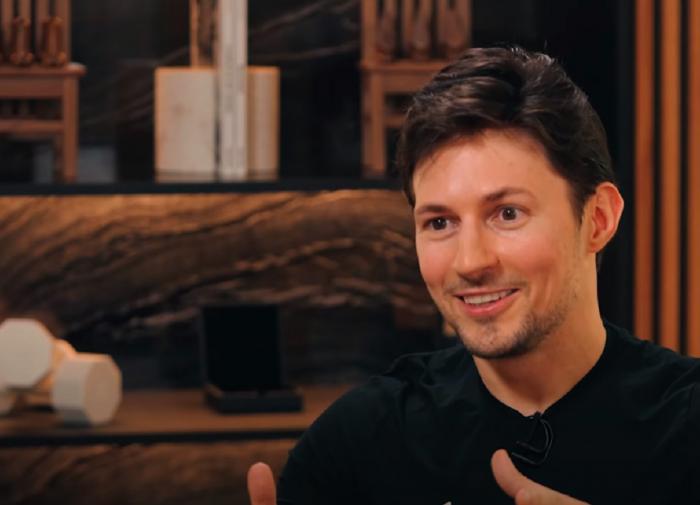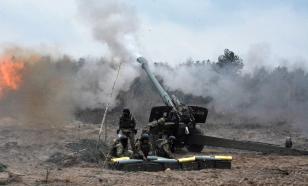Telegram founder Pavel Durov opens up his heart and mind to Tucker Carlson
On April 17, American journalist Tucker Carlson published his interview with Pavel Durov, the man who created Telegram messaging service, as well as Russia's most popular social network known as VK or VKontakte.

Here is a brief summary of the much-anticipated interview.
When asked where he was from, Durov replied that "it will be a long story.” According to him, he was born in the USSR, and when he was four years old, his family moved to Italy. He went to school in Italy and "became sort of a European." After the collapse of the USSR, the family moved back to Russia, where Durov received his education and founded VKontakte social network. He sold it and left Russia in 2013.
When opposition activists from various countries where VKontakte operates began using the social network to organise protests, the company started receiving requests from the authorities to ban such groups. In Russia, such requests began to arrive in 2011-2012, but VKontakte ignored them. In addition, the Russian authorities asked VK to provide them with personal data of those who organised protests in Ukraine. Durov refused to satisfy those requests. The decision to sell VKontakte was painful; it was the first company that Durov created, "but I realised that I prefer to be free.”
How Telegram was created and how it works now
The idea to create Telegram appeared when Durov was working in Russia. Telegram appeared, among other things, because of the need to have a way to securely communicate with Pavel's brother Nikolai Durov in order to be able to coordinate future actions against the backdrop of the refusal to delete individual groups or provide user data to the authorities.
Nikolai Durov is a programmer who wrote codes for VKontakte, Telegram, and the TON blockchain. In the interview, Pavel Durov called his brother a "genius,” a "super smart” person, and an expert in cryptography. Nikolai developed the basic principles of Telegram encryption, whereas Pavel was more involved in the user interface, the founder of Telegram said.
Before arriving in Dubai, where Telegram is now based, the messenger team, according to Durov, considered several other cities: Berlin, London, Singapore, San Francisco, but there were bureaucratic difficulties everywhere.
- In Germany it was impossible to hire programmers from other countries without first offering work to specialists from the EU.
- In San Francisco, Durov was mugged on the street after he came out of the Twitter office. Attackers attempted to snatch Durov's phone out of his hand, but he managed to keep it in his possession by fighting back and running away.
In addition, the FBI and other security services evinced too much attention in Durov's company in the USA. Those services tried to hire a Telegram engineer behind his back in order to convince him to integrate certain tools into the messenger code that would leave a loophole through which it would be possible to gain access to users' devices for unauthorised actions.
Durov moved to Dubai seven years ago. In the UAE, he said, it is easy to run business, there is effective taxation, and excellent infrastructure.
"This is a neutral country that wants to be friends with everyone. Geopolitically, it is not connected with any of the major superpowers,” Pavel Durov said.
According to him, Telegram wants to remain a neutral platform, accessible to people with different views.
Telegram now has more than 900 million users. The company spends nothing on marketing, platform promotion or advertising. Durov's team counts 30 engineers, does not have an HR department or other departments typical of large IT companies.
"I still develop most of the features, work directly with every engineer and designer who implements these features. I'm the only product manager because I believe that's how I can drive growth,” Pavel Durov said.
Durov refuses to attract venture investors to the project to maintain independence.
"For me [this project] was never about money <…>. I have no real estate, no planes, no yachts. This is not my way of life,” he said.
According to Durov, his main priority is freedom.
"Once you start buying things, you get attached to a physical location […]. The second reason is I want to stay focused on Telegram, but I know that if I buy a house or a plane or something like that, I will spend time trying to make them beautiful,” he said.
Pavel Durov sees all devices that he uses to be compromised by default.
"You will still be using iPhones or Android smartphone. And now, after what I experienced in the US, I have very limited confidence in US-developed platforms from a security perspective,” he said.
In response to another question, Durov said that he does not travel to "strange places” that do not correspond to his values. He does not travel to any of the major geopolitical powers such as China, Russia or the United States.
Pavel Durov supports Elon Musk's decision to buy Twitter (now called X), since this social network is "becoming a greater supporter of freedom of speech.” Additionally, the platform has been trying to innovate since the deal.
Durov also spoke about his meeting with Mark Zuckerberg, the founder of Meta Platforms (recognised as an extremist organisation in Russia; its social networks Facebook and Instagram are blocked in Russia), which took place more than ten years ago. According to him, Zuckerberg wondered whether Durov had plans for international expansion, whereas Durov asked Zuckerberg if Facebook had plans to increase its share in Russia. Both answered "no,” but still implemented those plans after some time.
Subscribe to Pravda.Ru Telegram channel, Facebook, RSS!


